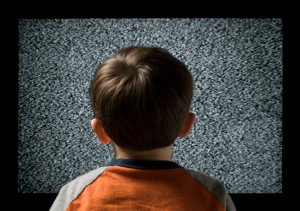 A new report found that interventions aimed at reducing children’s television and video game time have been largely unsuccessful. The report looked at 13 large studies comprised of 3000 children total and found that the studies were overall unable to achieve weight loss and weight reduction. This is troubling news, considering that according to the report, 25 percent of U.S. children watch 4 hours of TV each day, on average.
A new report found that interventions aimed at reducing children’s television and video game time have been largely unsuccessful. The report looked at 13 large studies comprised of 3000 children total and found that the studies were overall unable to achieve weight loss and weight reduction. This is troubling news, considering that according to the report, 25 percent of U.S. children watch 4 hours of TV each day, on average.
Some of the intervention methods used in the studies included classroom curriculum, individual counseling, automatic monitoring of screen time and family counseling. The studies did seem to have some positive effects on younger children – preschoolers were found to have reduced their television time by four hours weekly – indicating that the sooner the intervention the more likely it is to be beneficial.
The authors say that it is too early yet to determine that these interventions are entirely ineffective. With the wide range of methods used in the studies, comparing them is a bit like comparing apples to oranges. The authors suggest that to reduce weight issues and decrease television time, families do not eat in front of the TV, switch to sugarless beverages, and encourage children to participate in sports and other structured fitness activities.
The report is published in the Archives of Pediatrics & Adolescent Medicine and measured the impact of a range of interventions on weight and screen time in kids, with the studies ranging from 1 to 24 months.
Another study found a correlation between children sleeping less and being overweight.






Nutrition & Lifestyle